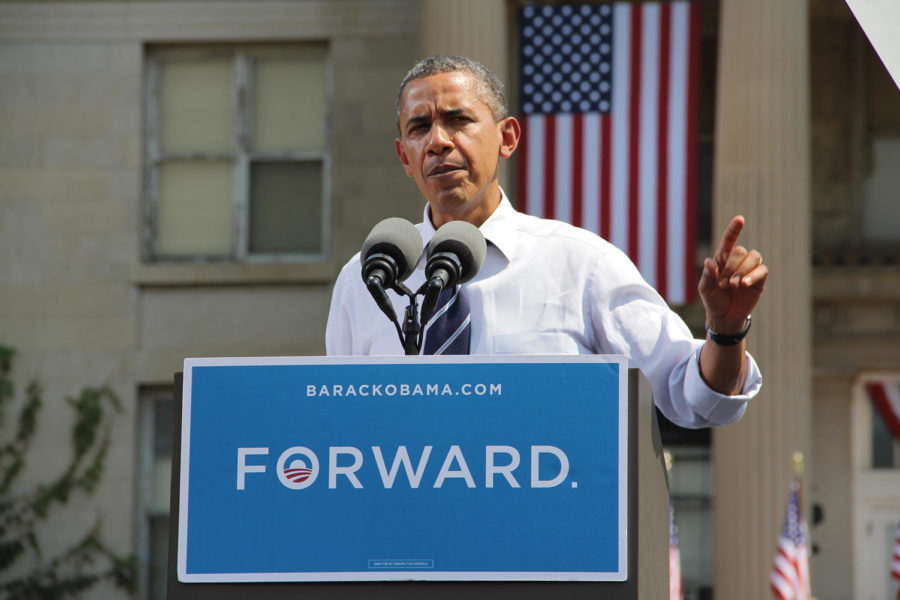Professors discuss possibilities for Obama’s second term
President Barack Obama addresses the importance of each individual vote in the November election Tuesday, Aug. 28, on Central Campus.
January 3, 2013
President Barack Obama made many promises during election season. He stated that he will try to keep as many of these promises as he can during his second term, ranging from the Affordable Care Act, or Obamacare, to immigration and job creation.
His largest promise is that the Affordable Care Act will continue to operate.
Steffen Schmidt, university professor of political science, said,“It is the law, and the Obama team will fight any efforts in Congress or the courts to weaken that law.”
Obama will also focus on job creation and the economy, as he said that he will get us out of the recession we are in.
“He is going to be focusing on job creation, particularly STEM, which stands for science, technology, engineering, and mathematics. Pretty much everyone agrees that these are major areas where we can grow the economy in the future,” said Mack Shelley, university professor of political science and statistics.
Schmidt thinks that is easier said than done.
“I think President Obama will have a very hard time achieving much during his second term, Schmidt said. “That’s primarily because the economy is still in very poor shape. Although job creation continues to improve other economic indicators are quite soft and some economists even read the start of a recession into the numbers.
“The weak European and world economy will continue to be an anchor dragging back U.S. economic growth,” Schmidt said. “Without a refreshed economy, the budget deficits and snail-slow job growth will mean slogging along and trying to keep things from getting worse.”
Immigration policy and reform will be another issue.
“He partly failed to deliver on his 2008 election promise to reform immigration,” Shelley said.
Schmidt said Obama may try to work on the Dream Act.
“One of the other things Obama may get done is to pass some form of the Dream Act, which will normalize the immigration status of millions of undocumented people living in the United States,” Schmidt said.
Shelley explained the Dream Act.
“The Dream Act would essentially make it easier for younger folks, around college age, to get a college education,” Shelley said.
The Dream Act is only part of immigration reform, however. If the United States wants to continue to grow as a nation, a large overhaul of the system including enticements for bright immigrants and other arrangements will have to be made, Schmidt said.
“The current U.S. population is growing only due to immigration,” Shelley said. “The birth rate in the country is pretty much right at or below replacement levels, which is about 2.11 children born to women of a child-bearing age. So without immigration, our country’s population would pretty much stagnate and just continue to become older, and that’s not very helpful.”
Energy independence and renewable energy are important to the Obama administration, and changes could be made to encourage American oil and natural gas.
“I think he’s going to continue to support renewable energy, but I don’t think that’s going to be a major thing. They don’t produce jobs very quickly, so more or less the oil and natural gas industries are going to be worth continuing support,” Shelley said.
Schmidt agreed, saying, “Tax breaks for oil companies and for companies that ship jobs overseas may go up, but that will be fought like crazy by Congress.”
On energy independence, Obama said that the United States could be independent from foreign oil soon.
“Within just a few years, the [United States] might not even need to worry about countries like Saudi Arabia, Venezuela and Kuwait,” Shelley said.







